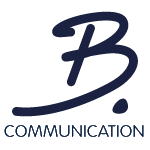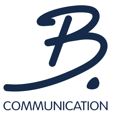Crossgate Helps Global Alcoholic Beverage, Tobacco and Energy Producers Meet New 2011 EMCS Mandates
Turnkey solution offers SAP clients real-time integration with Excise Movement and Control Systems (EMCS) throughout Europe
Munich/Atlanta on 22 November 2010
Crossgate the global expert in business-to-business integration (B2B), is offering SAP clients in the European Union an integrated solution to help them meet new governmental EMCS mandates for monitoring movements of excise goods.
Since the creation of the European Union Internal Market in 1993, the movements of excise goods among EU countries have been accompanied by a paper-based document, the Accompanying Administrative Document (ADD). The system was designed to ensure appropriate payment of taxes while respecting the principle of free trade among EU countries without requiring customs controls at the borders between Member States. But today, as many paper-based business processes are being automated and converted to electronic data exchange, government regulations are changing to keep pace with technology. As of April 1, 2010, companies which transport excisable goods under duty suspension are now required to migrate from traditional paper-based ADD systems to a computerized Excise Movement and Control System (EMCS) that uses electronic messages to monitor movements of excise goods. Migrations must be completed by the end of the year.
The new regulations will have the most profound effect on companies trading in alcohol, tobacco, and energy products, which have the most commonly applied excise duties. Under EMCS, a movement of excise goods between two traders is monitored through every stage of the shipment using an electronic Administrative Document (e-AD) issued by the consignor.
The e-AD must be validated by the EMCS of the Member State where it is originated. The e-AD is then transmitted electronically to the EMCS of the destination Member State, and it is forwarded to the consignee. When the goods are received, the consignee submits a report to all involved Member States and the consignor, acknowledging receipt and noting any anomalies in the shipment.
Each EU member state will be required to administer its own EMCS in addition to a set of real-time connections to all of the other EMCS locations throughout Europe. “The new EMCS regulations in the European Union will simplify administration procedures and make it easier for companies to manage the movement of goods among various countries,” said Scott Lewin, President, Crossgate, Inc. “However, the change from a paper-based system to an electronic real-time process poses many challenges for most companies. Companies have until the end of the year to make this transition, but now is the time for them to find a managed B2B service that can adhere to the new EMCS mandates while leveraging their existing IT infrastructure investments.”
Crossgate’s turnkey e-AD service is fully integrated with SAP and offers real-time integration with EMCS systems throughout Europe. Messages are transmitted directly out of SAP across Crossgate’s Business-Ready Network to the required government regulatory agencies. A customized EMCS transaction monitor enables viewing and management of both inbound and outbound events, along with mapping and communication of each message type between the Member State’s EMCS and the company’s SAP environment.
Outbound message requests are tracked and highlighted to indicate different processing states as the request is processed and responded to. Inbound messages are parsed and stored so they can be easily integrated into SAP. The Crossgate solution also includes provisions for managing messages associated with process variations such as cancellations, redirections, reminders, imports, and exports.
“Crossgate’s turnkey enablement is fully integrated with SAP, offers real-time integration with government regulatory agencies throughout Europe, eliminates expensive ERP augmentations, and fully complies with the new EMCS regulations,” said Lewin. “Companies who will be affected by these new regulations should begin planning for them now. We know the processes and we can help companies avoid potential non-compliance fines and implementation delays.” Regulatory compliance efforts can be time-consuming and difficult, but Crossgate’s B2B 360 Services make compliance easy for companies in more than 38 countries.





